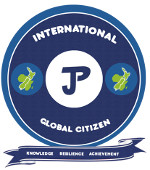Socio-economic factors: Because of the extreme poverty in Burundi, children drop school primary school and involve in anti social behavior. Likewise, Ethnic conflict and civil war in Burundi had left many minors and orphans children behind, and they cannot afford to buy school resources. Many children especially girls who don’t attend school, get unwanted pregnancy and they find difficult to raise their kids. Another compelling reason is that lack of education prevents vulnerable kids to reach their potential, contribute in the economy and become good citizens. Education for children in Burundi is very critical. Children don’t afford the tuition fees or school supplies. That is the reasons why the Burundi Empowerment aims to : Provide primary school children with resources, books, pen, soccer balls , laptops/ computers and other school equipment to Musave school, Empower the community especially children to attend, continue and complete primary school education, organize a Burundi children fun day in order to promote educational awareness and encourage the community embers to give their input. Other area of interest is: Community Development , Social change, Social development, Social justice, Social planning, Social research, Social Services and International Development Below we have shared the frequent asked questions, and we hope you they will help you understand more about the project. The best way to contact us is to complete the form provided at the Burundi Empowerment website. Usually, it takes one to 7 working days to respond your query. We can provide the bank account and details, per your request. In order to achieve best outcomes, monitor any donation we provide and prefer to work with local people, community and churches leaders and other trusted individuals. We also do regular assessment to ensure that the support we provided has reached the right children. While it is the responsibility of government of Burundi especially the ministry of education and social development to support some vulnerable, the country is unable to provide any assistance because of the extreme poverty. The community members seek to address children’s concerns by providing school with resources required. Importantly, the project seek to fill the gap in education system, and it aims to advance social justice because under the United Nations Conventions Rights for the children, every kid has right to education (UNCRC, 2000). Something must be done to save these children and help them reach their potential. If you have any input , interesting questions , please get back to us through http://burundiempowerment.org/faq
The issues of deep poverty make it difficult for most students to obtain an education. However, poverty is not the only underlying cause of poor education in Burundi. In fact, the Educational System simply does not have the room or resources to place children in schools. This results in very strict competition among sixth-graders to be selected for the next grade.
Frequent Asked Questions
We are against any corruption behavior or misuse of children’s sponsorships.
Yes, we welcome any person from any country as long as you have interest in this project, please refer the bank details above.
Yes, we welcome any support you may need to provide as long as it can be used to empower those children families. We prefer any empowerment support, which can be used for community development.
Most of children we are supporting are returned refugees whose parent have lived neighbor countries of Burundi, during the civil war in 1972 and 1993.
The project runs every year, January-December.
We currently run this project in Musave village, Burundi
Obviously, the principle interest of joining this project is that you are helping a desperate child to succeed “ There is no more noble occupation in the world than to assist another human being – to help someone succeed”. There are many reasons why this project was created. Firstly, the Unicef Burundi (2012) affirms that the main challenge that affects many vulnerable in the primary schools in Burundi is the inability to buy the school resources. The UNICEF Burundi ascertains that the vulnerable children drops school and involve themselves in the anti social behavior. As consequences, they commit crime and cause trouble in the community including robbery and illegal activities.
